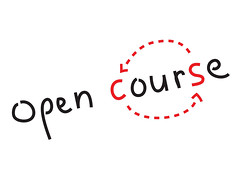 today is onewebday. from their site:
today is onewebday. from their site:
onewebday is an earth day for the internet. the idea behind onewebday is to focus attention on a key internet value (this year, online participation in democracy), focus attention on local internet concerns (connectivity, censorship, individual skills), and create a global constituency that cares about protecting and defending the internet. so, think of onewebday as an environmental movement for the internet ecosystem. it’s a platform for people to educate and activate others about issues that are important for the internet’s future.
when i hear the words “online participation in democracy”, my first thoughts don’t turn to politics. they turn to open source.
open source is a collaborative way to develop, maintain and change a “product”, from a sermon to software to pharmaceuticals. open source allows and depends on concurrent input of different agendas, approaches and priorities in decision making and contribution. the most widely known open source product is wikipedia. i guess the barnraising of old was also often an open source project. open source is grassroots-based and the opposite of centrally-directed, authority-based activity.
i know very little about open source yet but the way i see it so far, it seems to epitomize democracy.
here are some examples of open source:
- open source spirituality
- open source judaism
- open source zen
- creative commons on flickr, which i use all the time
- open source peace
- the open source beer project
- open science – professional scientists
- citizen science – science “volunteers”
- first open-source car
- open source education
- wiki government in new zealand
and how can you help the web on onewebday?
1. if you’re a web user, use a standards-compliant web browser like firefox or opera. they’re free, faster, and more protective of your privacy. and because they conform to web development standards, they make things easier for people who make web sites. if you’re a web developer, test your sites with the w3c’s markup validation service.
2. edit a wikipedia article. teach people what you know, and in so doing, help create free universal knowledge.
3. learn about an internet policy issue from the center for democracy and technology, and teach five other people about it. there are real legal threats that could drastically change the way the internet works. we should all be aware of them.
4. take steps to ensure that your computer can’t be treated like a zombie. computer viruses can steal your personal information. they can also cause major network outages on the web, slowing things down and making sites inaccessible. vint cerf estimates that more than 150 million pcs have already been zombified, and are now awaiting their next order. to learn more about the threat of zombie computers, read this article.
5. join an internet rights advocacy group:
-
become a member of the electronic frontier foundation. the eff has championed the public interest in every critical battle affecting digital rights, from privacy to free speech to internet service.
-
join the internet society. isoc is dedicated to ensuring the open development, evolution and use of the internet for the benefit of people throughout the world, particularly by establishing internet infrastructure standards.
-
support creative commons by donating and by using their licenses to copyright your work. if you’re outside the u.s., help support their counterpart, icommons.
6. help promote public internet access. if you live in a city, there is likely an organization dedicated to providing free wireless access in public spaces.
7. donate to the wikimedia foundation. the wikimedia foundation supports not only wikipedia, but several other projects to create free knowledge: textbooks, news, learning tools, and more.
8. donate a computer. you can donate a new $100 laptop to children in impoverished countries, or donate your used computer to goodwill or a school.
9. write your onewebday story. talk about what the internet means to you and why onewebday matters at http://onewebday.org/stories
10. if your city is hosting a onewebday event, show up on september 22 and participate.
the open source image comes from marc wathieu
